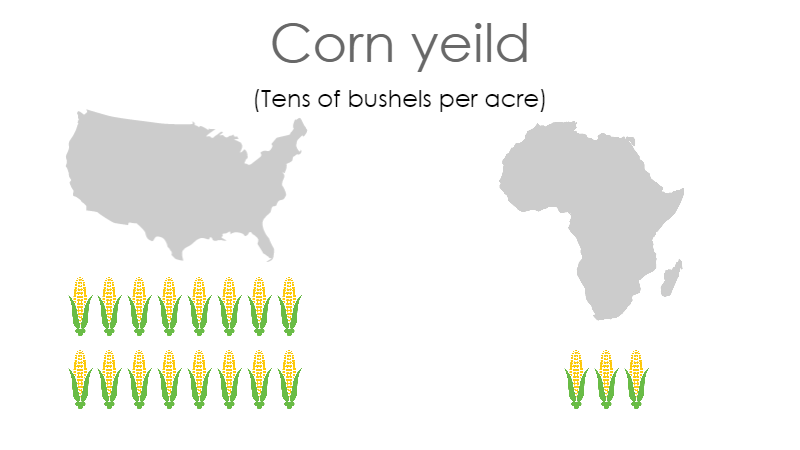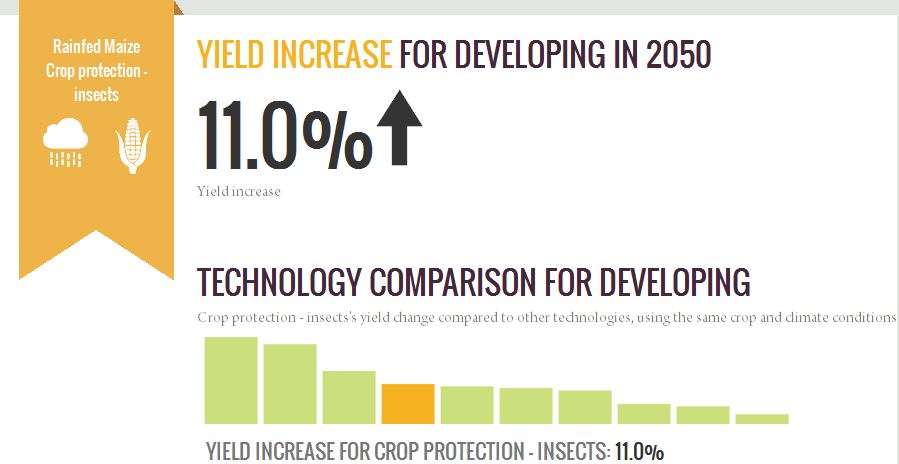Agricultural Biotechnology: RevBio at Thought for Food
Revolution Bio has been trying to start an inclusive conversation about biotechnology – something the agriculture world hasn’t been particularly good at. So when we were invited to talk about synthetic biology at Thought for Food (TFF), we had to take some time to think about how we fit into the big picture.
The TFF Challenge and Global Summit is the SxSW of food security, with morning dance parties, inspirational speakers, and the positive message that you can make a difference. It’s a lot of fun, but the underlying focus is the fact that we will need more food – a lot more – in the next 50 years. The global food system is plagued with inefficient agricultural practices, problems with food storage and distribution resulting in one big issue —waste. We waste potential and we waste food in vast quantities.

US farmers can grow five times as much corn on the same amount of land as African farmers.
In the USA, the King of Corn, we yield about 160 bushels per acre. Africa yields about 30. Lack of training, tools, and techniques results in small-holders in developing nations leaving potential agricultural yields on the table.We don’t need expensive technology to help these farmers- simple low-tech and low-cost approaches like agricultural education will drive enormous gains in farming efficiency.
The Gates Foundation advocates for all of these things - better seeds, better tools, better education - in a recent call to action.
And then there is the waste of food-when food is grown and it is simply thrown away. Between storage, shipping, and packaging, the developing world wastes 1/3 of their food between the farmer and the consumer. In developed worlds, logistics is very efficient, but consumers are not. In developed countries – me, you, most people reading this – wastes 1/3 of the food they bring home.
So how did Revolution fit into this picture? How can biotechnology make a difference here?
Synthetic biology is a technology of promise and potential, but for most people it’s an unknown. And in the context of our food, that unknown comes with a lot of questions about health, safety and necessity. So in our talk at TFF, we started there. We didn’t talk about the world-saving benefits of agricultural biotechnology. Instead, we started a discussion to clear the air, remove the bogeymen and start speaking honestly about what biotechnology can and cannot do.

This model, developed by Harvest Choice lets you look at potential yeild increases with various technologies. Insect protection throughout the developing world yields an 11% increase. “No-till”(using a method of weed control other than tilling) - that increases yeild by 67%. Try it yourself.
Biotechnology cannot save the world by itself. It functions within a system that needs better logistics, new protein sources, and integrated social approaches to nutrition. In some contexts agricultural biotechnology can be a powerful tool, in others, conventional breeding, or a different solution all together might be the answer. It’s up to us to figure out how to thoughtfully integrate this technology with the many others that will build a food secure future. That conversation needs to involve everyone.
We did our part to expand that discussion at TFF with some color changing magic. Who are you talking about biotechnology with?
Want to know more about TFF? Nikolai was on the team judging panel! Click to learn about the winning teams & the future of food.
